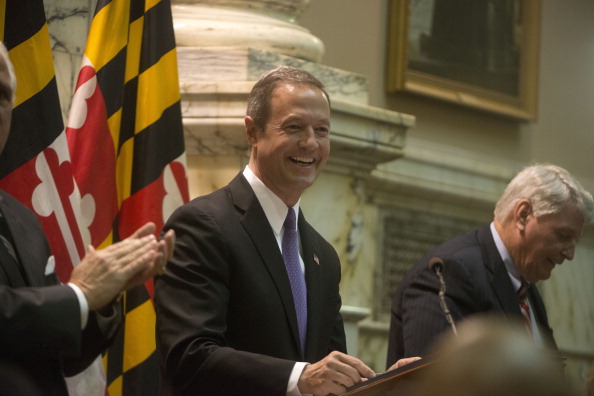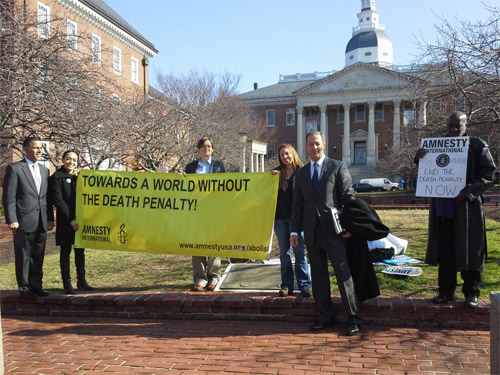
After decades of work towards abolition, activists were finally rewarded when the Maryland House of Delegates passed the death penalty repeal bill (Photo Credit: Marvin Joseph/The Washington Post via Getty Images).
INTRODUCTION
Last week we had great news – Maryland’s General Assembly voted to repeal Maryland’s death penalty! The bill is now in the hands of Governor Martin O’Malley, who will certainly sign it as one of the most outspoken proponents of the bill.
Amnesty activists celebrated last week – but the victory came after years of hard work. Amnesty International has campaigned for the worldwide abolition of the death penalty since 1977, the same year that the USA restarted executions after 10 years without capital punishment. In 1978, Maryland passed a law reinstating the death penalty. Amnesty volunteers and staff, as part of an increasingly broad and dynamic coalition, have been working to repeal that law for most of its existence. This year, 35 years after its reinstatement, Maryland’s death penalty looks at last to be on its way out.
This week’s special blog series tells the story of Amnesty International’s involvement in this campaign, featuring the memories and insights of volunteers and staff who played critical roles over more than three decades.
Take action to thank Maryland’s leadership for their support of death penalty repeal and urge them to ensure that funding to support victims’ families in included, as originally promised, in this year’s state budget.
SEE THE REST OF THIS POST



